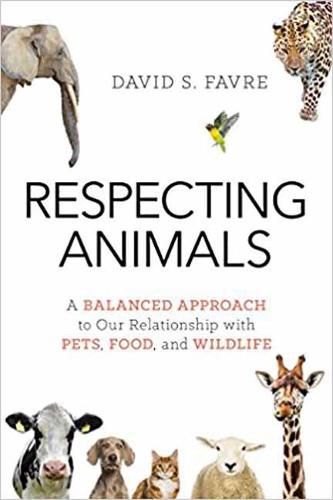Readings Newsletter
Become a Readings Member to make your shopping experience even easier.
Sign in or sign up for free!
You’re not far away from qualifying for FREE standard shipping within Australia
You’ve qualified for FREE standard shipping within Australia
The cart is loading…






In this fresh approach to the animal rights debate, a legal scholar and expert on the humane treatment of animals argues for a middle ground between the extreme positions that often receive the most public attention. Professor Favre advocates an ethic of respectful use of animals, which finds it acceptable for humans to use animals within limited boundaries. He looks at various communities where humans and animals interact- homes, entertainment, commercial farms, local wildlife, and global wildlife.
Balancing the interests of the animal against the interests of the human actor is considered in detail. The author examines the following questions, among others- Is it ethically acceptable to shoot your neighbor’s dog for barking hours on end? Is it ethical for a zoo to keep a chimpanzee in an exhibit? Is it ethical to eat the meat of an animal?
Finally, he discusses how good ethical outcomes can best be transported into the legal system. The author suggests the creation of a new legal category, living property, which would enhance the status of animals in the legal system.
This thoughtful, well-argued, and elegantly written book provides readers with a comprehensive and practical context in which to consider their personal and social relationships with animals.
$9.00 standard shipping within Australia
FREE standard shipping within Australia for orders over $100.00
Express & International shipping calculated at checkout
In this fresh approach to the animal rights debate, a legal scholar and expert on the humane treatment of animals argues for a middle ground between the extreme positions that often receive the most public attention. Professor Favre advocates an ethic of respectful use of animals, which finds it acceptable for humans to use animals within limited boundaries. He looks at various communities where humans and animals interact- homes, entertainment, commercial farms, local wildlife, and global wildlife.
Balancing the interests of the animal against the interests of the human actor is considered in detail. The author examines the following questions, among others- Is it ethically acceptable to shoot your neighbor’s dog for barking hours on end? Is it ethical for a zoo to keep a chimpanzee in an exhibit? Is it ethical to eat the meat of an animal?
Finally, he discusses how good ethical outcomes can best be transported into the legal system. The author suggests the creation of a new legal category, living property, which would enhance the status of animals in the legal system.
This thoughtful, well-argued, and elegantly written book provides readers with a comprehensive and practical context in which to consider their personal and social relationships with animals.